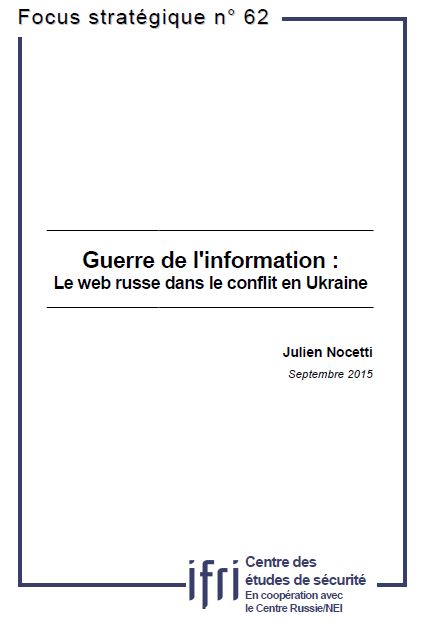Guerre de l'information : le web russe dans le conflit en Ukraine

Since the beginning of the crisis in Ukraine, Russia has been waging an information war.
Russian information warfare reflects its perception of its relationship towards the West as being that of a state of permanent conflict which needs the use of alternative tools to weaken both the enemy’s will and the capabilities. Up to this day, Russian information warfare has followed two main lines of actions: tightening the control over the Russian internet, in order to prevent any scenario of popular uprising coupled with an activist use of the web; and undermining the objectivity of Western and Ukrainian media coverage of the crisis. Despite some successes at the beginning of the conflict, Russian heavy-handed propaganda techniques did not allow the Kremlin to influence the international media as much as the alleged ambitions and the current means could lead to expect. They are, on the contrary, harming Russia's image both in its Near Abroad and in the West.
This content is available in French: Guerre de l'information : le web russe dans le conflit en Ukraine
Related centers and programs
Discover our other research centers and programsFind out more
Discover all our analysesThe Franco-German Brigade and the Revival of European Defense
One thing has been clear since Donald Trump's return to the White House: the very existence of the European unification project is threatened. Unless it develops a sovereign defense policy to counter the war in Ukraine and the weakening of American security guarantees, the European Union will continue to see its internal cohesion and external attractiveness wane.
Taking the Pulse: Can Europeans Build Their Independent Extended Nuclear Deterrent?
Confronted with a U.S. disengagement and the Russian threat, Europeans are reconsidering their stance on nuclear deterrence. Given the capabilities of the French and British arsenals, can Europe develop an independent nuclear deterrent?

RAMSES 2024. A World to Be Remade
For its 42nd edition, RAMSES 2024 identifies three major challenges for 2024.
A Transatlantic Defense Industrial Base? Two Contrasting Views
The evolving landscape of global defense cooperation has brought the transatlantic relationship between the United States (US) and Europe into sharp focus. As geopolitical tensions rise and the threat environment becomes more complex, the question of how Europe can best ensure its security while navigating its relationship with the United States has become paramount. This double feature report offers two contrasting views on the dynamics of US-Europe defense industrial relations, highlighting the challenges and opportunities that lie ahead for both parties.










